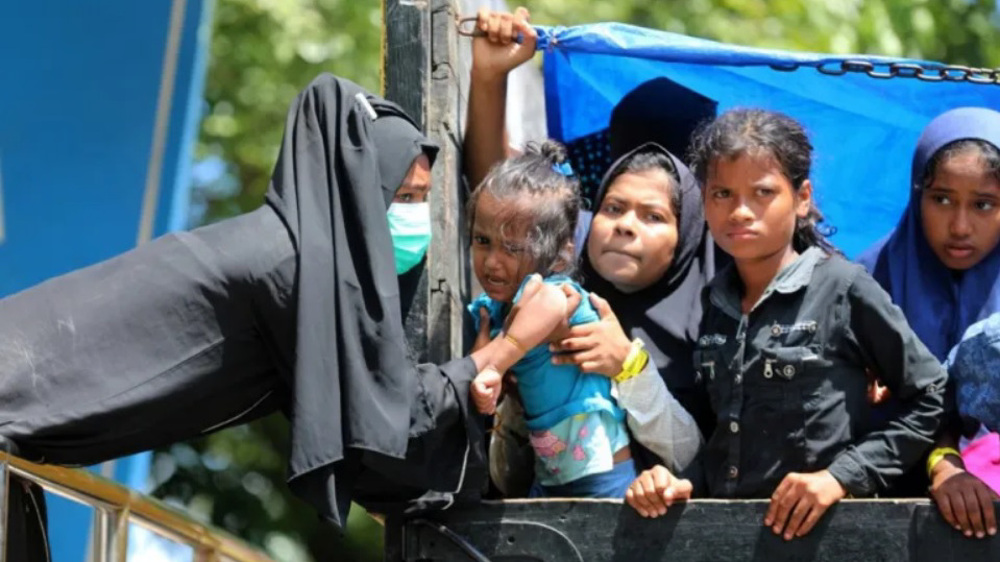Beijing bombers boosting tensions in South China Sea: Vietnam
Vietnam’s Foreign Ministry has said that China's recent landing of bombers at an air base in the South China Sea violates Vietnam’s sovereignty over the disputed region.
The landings “increase tensions, cause regional instabilities and are not good for maintaining a peaceful, stable and cooperative environment in the East Sea,” said foreign ministry spokeswoman Le Thi Thu Hang said in a statement released on Monday.
“Vietnam demands that China stop these activities, cease militarization of the area, and strictly respect Vietnam’s sovereignty over the Hoang Sa islands,” Hang said, referring to the Paracels' Vietnamese name.
She added that presence of the bombers in the area has an negative impact on ongoing negotiations between China and the Association of Southeast Asian Nations on a Code of Conduct in the South China Sea.
Earlier, Beijing dismissed allegations that it is “militarizing” the South China Sea after landing bombers at an air base in the disputed waters.
The accusations were leveled after the Chinese Air Force for the first time carried out landing and take-off drills on an islet in the South China Sea on Friday as part of efforts to deal with maritime security threats.
The training exercise prompted immediate criticism from the United States, with a Pentagon spokesman slamming China’s “continued militarization of disputed features in the South China Sea.”
Defending the deployment of bombers to the contested waters, Chinese Foreign Ministry spokesperson Lu Kang told a regular briefing on Monday that “the South China Sea islands are Chinese territories.”
The movement of the bombers into the area was “part of the normal training for the Chinese military,” the spokesman said, adding that the US “sending its own warships and planes to the region ... poses a danger to other countries.”
Beijing has on numerous occasions stressed that its military drills in the South China Sea are part of routine military training.
Beijing has repeatedly asserted its sovereignty over nearly all of the South China Sea, which serves as a crossing for more that $5 trillion worth of maritime trade annually. The sea is also claimed in part by the Philippines, Brunei, Vietnam, Malaysia and Taiwan.
Earlier in the month, the White House said it was prepared to take measures against any activities aimed at the militarization of the South China Sea, after reports said Beijing had deployed new missiles on three outposts in the hotly contested region.
The US has been taking sides with several of China’s neighbors in their territorial disputes in the busy sea, and stepped up its military presence in the South China Sea under the pretext of freedom of navigation operations in international waters.
China calls the US military presence in the region an instance of meddling and warns it’s likely to stir regional tensions. Beijing's deployment of defensive facilities in the region is believed to be partly motivated by the US military buildup.
Democrats threaten govt. shutdown after second ICE killing in Minneapolis
MSF to disclose limited list for Gaza staff after Israel revoked its aid licenses
VIDEO | India defies Western push at UN Rights Council on Iran
Cuba's president observes drills, vows high cost for any US aggression
Iran dismisses Nazi-style propaganda on riot death toll
Israel kills more civilians in Gaza amid relentless ceasefire violations
VIDEO | Press TV's news headlines
Israeli soldier fakes kidnapping of Palestinian to extort family













 This makes it easy to access the Press TV website
This makes it easy to access the Press TV website